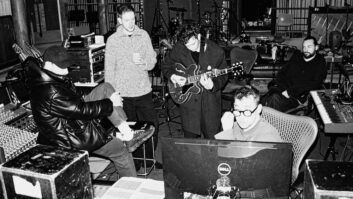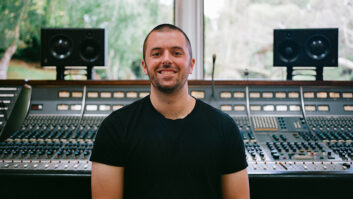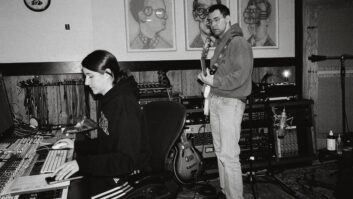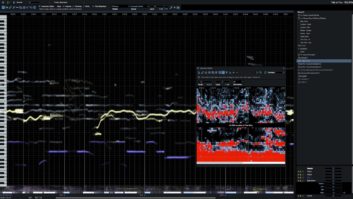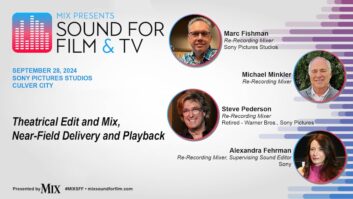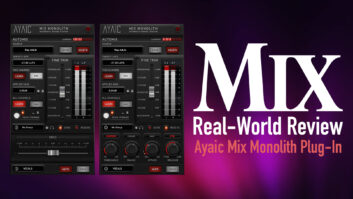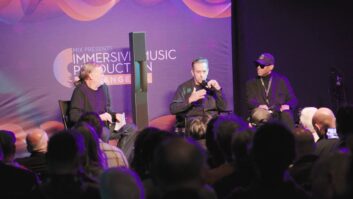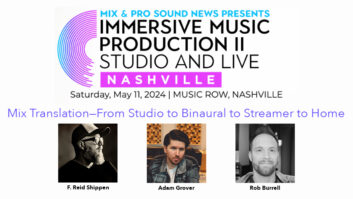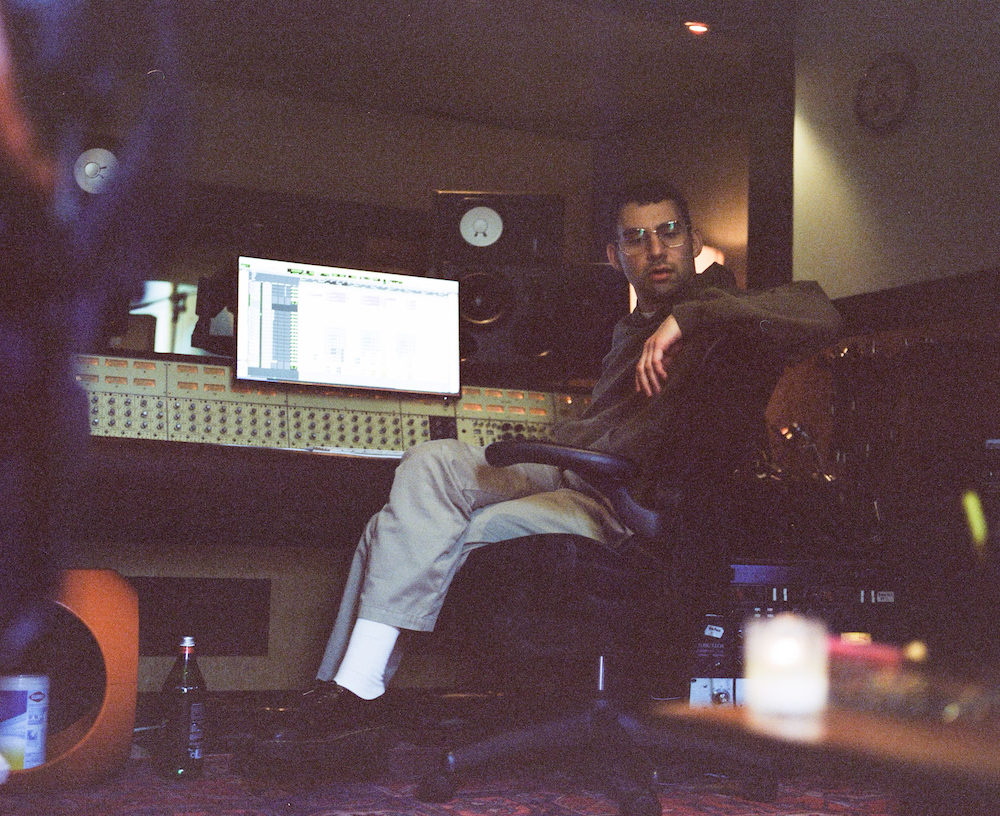
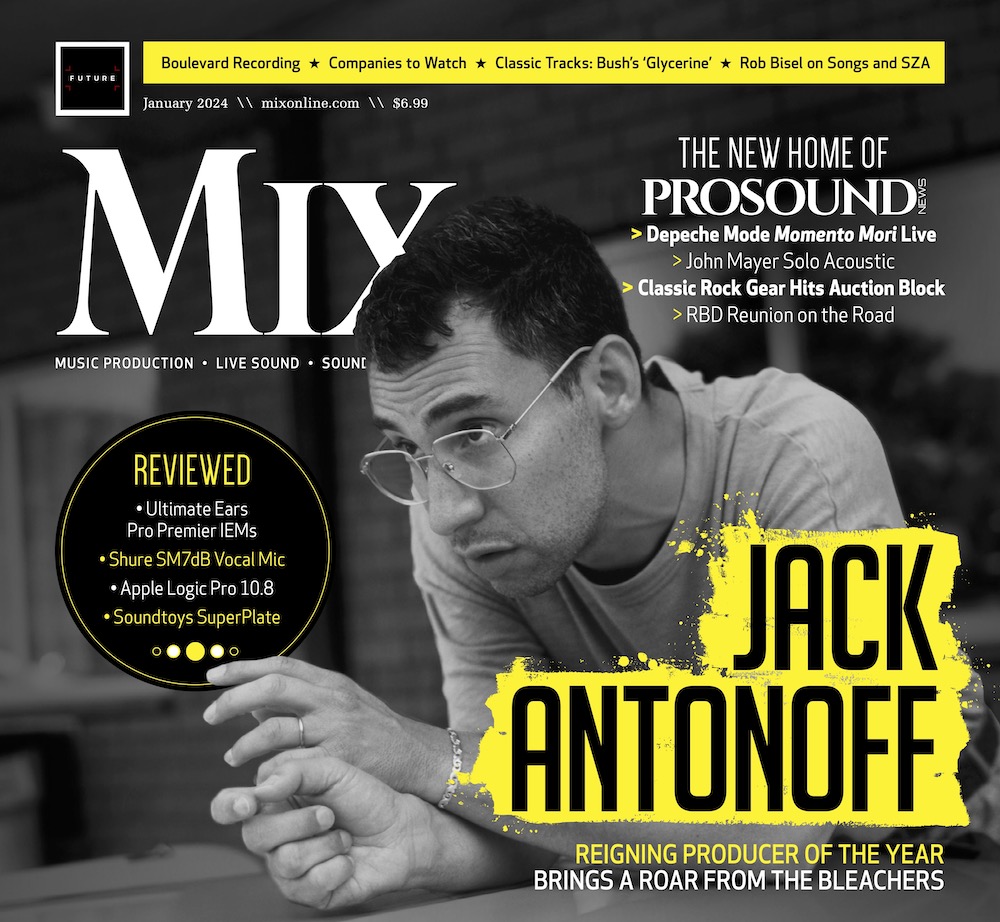
New York, NY (January 2, 2024)—In the 11 months since Jack Antonoff took home a second straight Grammy Award for Producer of the Year, Non-Classical, he has: produced and/or written for some of the year’s most successful album releases, including by Taylor Swift (Midnights), Lana Del Rey (Did You Know That There’s a Tunnel Under Ocean Blvd.), and The 1975 (Being Funny in a Foreign Language); formed a joint venture with Dirty Hit Records that includes management and a label deal for both him and his band, Bleachers; left Sony to sign an exclusive publishing deal with Universal Music Publishing; married Margaret Qualley; been famously photographed toasting martinis with Taylor in NYC to celebrate yet another record achievement for number of hits by a female artist; finished the writing, tracking, mixing and mastering on the fourth Bleachers album; and, just for kicks, to close out the year, blitzed through a five-city, two-week Bleachers tour in early December—two shows in Florida, then Chicago, Los Angeles and New York—trying out some of the new songs onstage for the first time.
And those are only the highlights.
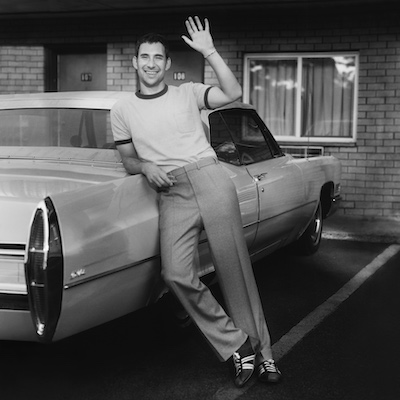
On the day he sat down to talk with Mix in early December, Antonoff was in Chicago, sneaking a quick lunch before heading out to the Byline Bank Aragon Ballroom for soundcheck ahead of the Bleachers show that night. Earlier that morning, the video for the first song from the upcoming album, “Alma Mater,” featuring longtime collaborator Lana Del Rey, had been released to much fanfare on the Internet. Things were in motion. Doors were opening, noises sometimes popped up, and once or twice, Antonoff had to pause and answer a question in the background, yet he never once lost track of our hour-long conversation. That’s not easy to do. He never missed a beat.
The ability to focus in the midst of chaos might be considered a prerequisite for a producer. Antonoff has that talent in spades; that’s how his brain works and always has. He‘s talked openly and honestly about his struggles with depression, grief and mental health in the years following his sister’s death, while they were teenagers. Throughout his life, he says, music has provided both the lens and the focus that allows him to write, create and produce music. Music is always on his mind.
Ironically, it’s music that allows him to ignore the critics who rush to either praise or diss his work. Antonoff has been called everything from the Savior to the Destroyer of pop music. The media fixates on his “meteoric rise,” tossing him in with fast-peaking megaproducers as if salivating over the prospect of a fabulous fall back to Earth. None of it seems to affect him. He is fully aware that in these days of social media, a 24-hour news cycle, and limitless on-demand entertainment, the public’s taste and attention can be fleeting. At age 39, he says, he’s happy with who he is and what he does. At heart, he’s a punk rocker with a knack for pop, perhaps born two decades late.
Awards season is now in full swing, and Antonoff is up for six Grammys, including a potential third consecutive trophy for Producer of the Year. On this day, however, his mind was on soundcheck and the show. With the bright lights of Taylor and Lana and pop superstardom turned down for a brief moment, and a record release and tour coming up in March, he seems both excited and relaxed, happy to be heading back out on the road as a guitarist and lead vocalist, just “one of the guys in the band.” That’s where our interview begins:
Mix: So you’re playing a show tonight in Chicago, I hear. I’m glad to see you still spend a good bit of time on the road. I’ve talked to a lot of talented people over the years, whether artist or engineer, who say that their time on the road has a big influence in how they approach their time in the studio.
Jack Antonoff: Oh, absolutely. My life has always been both. And there’s no world in which I could do it any other way. They’re very separate passions, but they do speak to each other, and they work together in my head. I understand why some people hate touring, I understand why some people hate sitting in the studio. I happen to love both and it’s just what I’ve always done, just in different capacities, ever since I was a kid play songs with my friends, then going to my room and playing around with my Roland VS-840 8-track.
When I play live, there’s this magic thing that happens that is very in the moment and can only be happening right there. It can be no other way because there are no do-overs. It’s literally life. You know when you’re really cooking and you know when you’re not. There’s this specific feeling that you know from being on the road, where there’s sometimes just lightning in a bottle.
The same feeling can hit you in the studio. It might be that the timing is a little wonky, or the take wasn’t captured perfectly, or one of the stereo mics was kind of crapping out a little bit. It doesn’t fucking matter. You know that feeling—and when you have that feeling, that’s the take.
In the studio, I like to use my computer to bounce things around, back and forth, maintaining that spirit. If I’m recording a drum set, say, and I have eight mono mics and maybe two, three or four stereo tracks going, I’ll dial in the sound to how I really like it and bounce that immediately if I’m being somewhat cautious—but I’ll have plug-ins on it, run it through outboard tape stuff. The point being, if you’re working digitally, just put things down. We try to do that as much as possible when we’re actually working because I want to be working with what I thought was interesting when I did it. I don’t want to have this sort of trap door where I can go back and fix it if it’s not good. It’s simply not good! Move on.
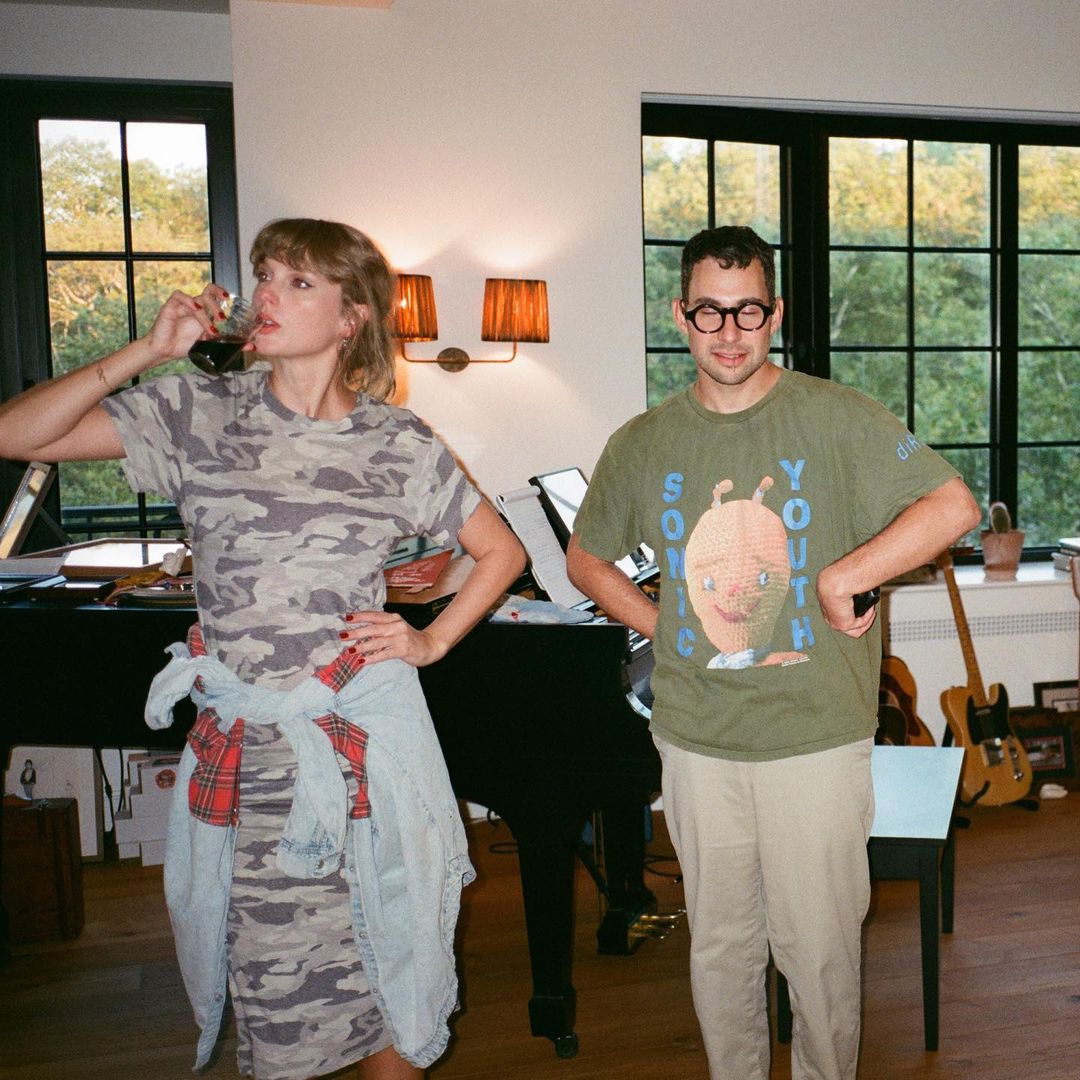
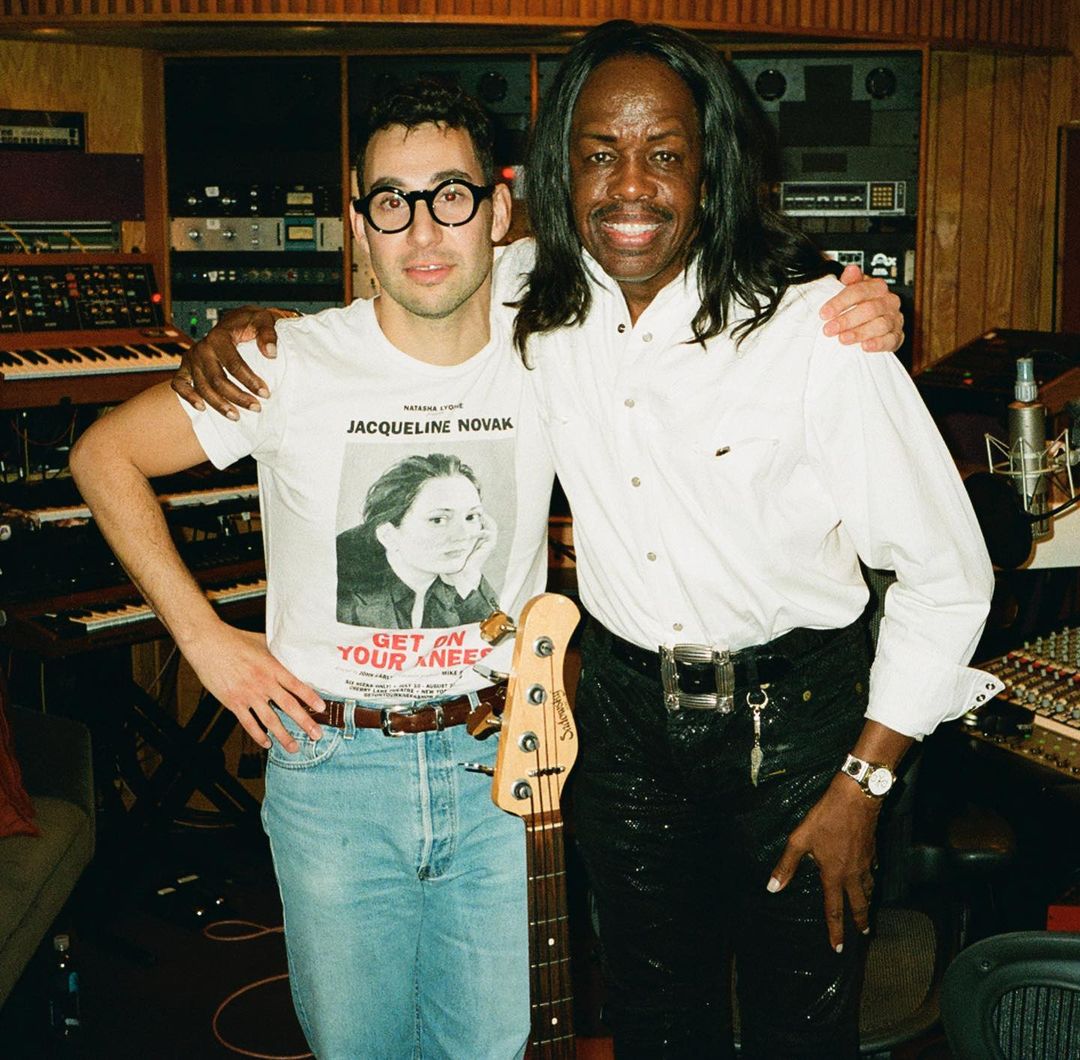
You spend a lot of time in recording studios, I imagine, and I know you recently built a pretty cool one at home. Do you like them? What does a good studio do for you?
I see a recording studio primarily as a really cool creative space. There’s something powerful about making the choice to go somewhere where you’re going to do something like make a record. I like the whole idea of going in, and I think we’re all lucky to be there. You don’t go to Disney World to spend the whole time bitching about your problems. If you’re in Disney World, then you should enjoy the ride. I think of studios like that. And just because some of us go every day, I don’t think it’s a place that should be taken for granted, because a recording studio can be magical and special and we’re lucky to get to go so often, even if your studio is at home. I just think that if you’re going to turn the thing on and spend time capturing bits of your soul, you should treat the experience with honor and respect—and so every time I go into a studio, I try to carry that feeling with me, and it really, really helps. It helps me feel like something’s going on in here that’s bigger than me in a room.
